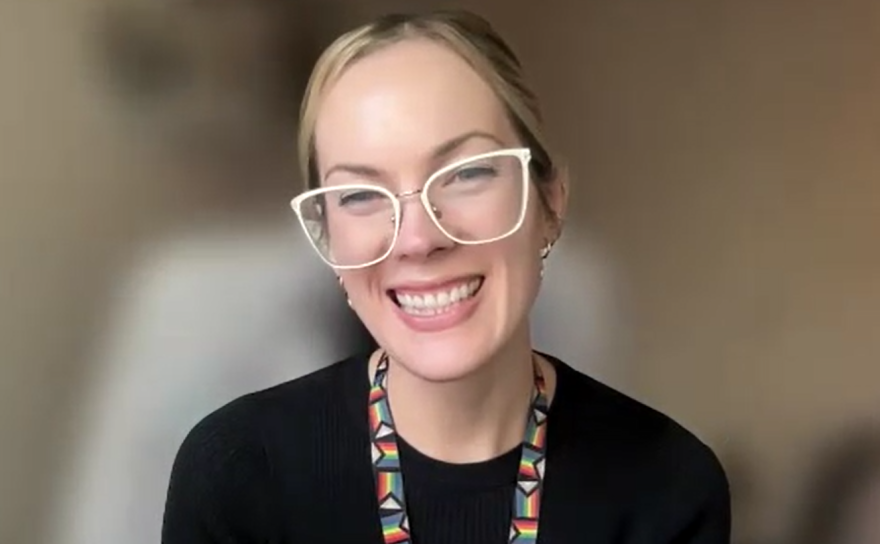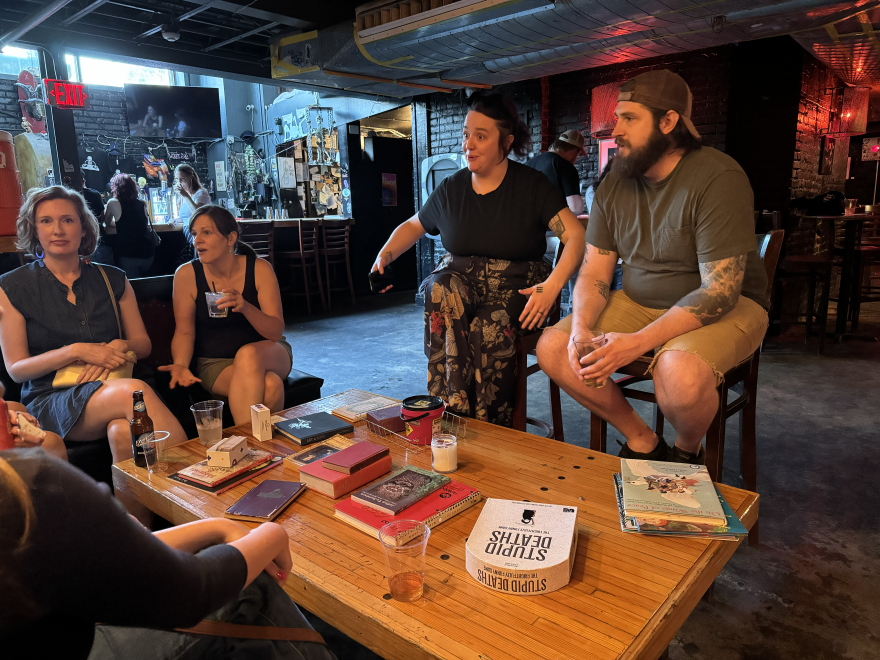It’s a weeknight at the B-Side Lounge in Cleveland Heights for “Drinks Over Death," a monthly gathering where people talk about — well, death.

About 20 people huddle up in chairs and tables facing the stage. Some play death-related board games, others talk to friends over drinks, surrounded by death-related dolls including a bobblehead of Edgar Allen Poe.
It's all to lighten the mood of participants and normalize a topic many see as taboo. Some attendees are EMTs or hospice workers, but most are just regular people wanting to understand their mortality better.
Bridget Cullen, of South Euclid, has terminal metastatic stage four breast cancer, and came to the event to help deal with her own mortality.
"Being able to talk about death without being judged for it or told like my dark humor is not appropriate," said Cullen. "I like that it's appropriate here and I can make all the sarcastic jokes I want to."

Support and decisions
The organizer of the event is the nonprofit Cleveland Death Society, which helps people better understand all things associated with death. Brandi Lynn Wiles is its founder. She’s also a death doula, or a nonmedical companion who provides support to people who are dying and to their friends and family.
"I got tired of finding out that friends had cancer out of nowhere and then passing away," said Wiles. "And I had been searching for something for a while to help people get through what they're dealing with."

Wiles said she started the society to help people find a path to deal with grief.
"So why don't we have like better resources for this?" said Wiles. "We've just been brought as a society to not talk about it."
Death cafes started in the early 2000s, mostly in Europe, but are now popping up in places likes homes, bars or hospitals.
"Physician comfort with death and dying has significant impact and implications for patient outcomes," said Dr. Gabriela Gomez, a resident physician at the Harvard Radiation Oncology Program.
Gomez and two other colleagues conducted a study published in the American Journal of Geriatric Psychiatry that showed 80% of physicians at Johns Hopkins University who attended a virtual death café reported feeling more comfortable talking about death and dying with their patients.

"Not only does this improve quality of life, but there's also emerging evidence that earlier integration of palliative care may extend patient survival," said Gomez. "So having these conversations can increase coping strategies, but also potentially extend our lives."
Death cafes can also help the process of planning for the future, Gomez said, including getting people thinking about wills and advance directives for hospital decisions.
"Too often, in my professional experience, a hospital admission, or worse, an ICU admission, is the point at which patients, their families, and sometimes their providers realize that this is the end of the road," said Gomez.
A game about death
Back at the B-Side Lounge, a group of acquaintances-turned-friends found a death card game with prompts for conversation.

One prompt reads: "A loved one requests jewelry be created from their cremated remains. Would you wear it?"
Philip Cranmer, one of the people at the table, lives in Shaker Heights. He said events like this allow him to talk about the topics he often must bridge as a therapist.
"I think it's really valuable for people to talk about death, especially with their loved ones," said Cranmer. "Especially with people who are close to them, because it's a fact of life."
The next event is Nov. 19.


